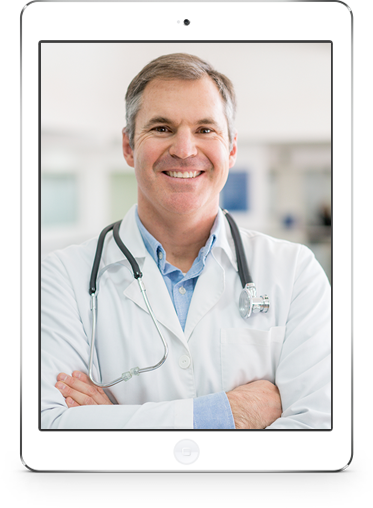What We Treat:
Is That Bad Taste in My Mouth From Heartburn?
Do you have a bad taste in your mouth? Do you cough often but are not sick? Do you feel burning in your chest after you eat? Are you overweight? If so, then you may be suffering from heartburn. Heartburn is a burning sensation in the chest under the sternum due to indigestion. It is common within sixty minutes of eating food and occurs more often in overweight and obese individuals. When regurgitation (vomit in your mouth) occurs, in addition to the heartburn, it is called gastroesophageal Reflux Disease (GERD).

Common Heartburn Symptoms
- A burning sensation in the chest under the sternum area
- Stomach or throat pain
- Bloating & belching
- Regurgitation of food and stomach acid back into the mouth and throat
- The feeling that food is stuck in your throat
- Heartburn that is worse after a large or fatty meal
- Heartburn that occurs within sixty minutes of eating
- Heartburn that is worse when laying down
The following symptoms are common in other conditions and make it difficult for your doctor to diagnose you correctly.
Uncommon Heartburn Symptoms
- Coughing and wheezing could point to asthma or a lower respiratory infection. Your doctor will want to look in your mouth and listen to your lungs to make sure the cause isn’t from a bacteria or inflamed lungs.
- Hoarseness
- Mouth and gum problems
- A sore throat that won’t go away. A sore throat is a common symptom in a multitude of other illnesses. It can be from strep throat, coughing too hard, throat cancer, and other throat issues. Your doctor may need to run a few tests to rule out other causes.
- Severe chest pain. If you are having severe chest pain that doesn’t respond to antacids anymore, especially if you have been experiencing heartburn for years and taking antacids the whole time, your doctor is going to fear that you may be having symptoms of a heart condition rather than worsening heartburn.
Who is at Risk for Hearburn?
Anyone can develop heartburn, but those more at risk include:
- Smokers
- People who are stressed
- Overweight or obese individuals
- Those who lay down immediately after eating
- Individuals with a history of a hiatal hernia
- Those who eat large meals
- Pregnant women
- Those who consume a lot of fat in their diet
- People with a history of asthma
- Those with delayed stomach emptying
- Individuals with a history of diabetes
What Will My Doctor Ask Me?
Your doctor will ask you a variety of questions pertaining to your heartburn and some questions that you believe do not relate to your heartburn. They will possibly ask you:
- Is your heartburn aggravated by meals?
- If the heartburn pain goes away after taking an antacid
- If the pain is relieved by sitting up and worse by laying down
- If you are a smoker
- If you have a cough
- When you first noticed the heartburn and how long you have been experiencing it
- If you have a medical history of stomach problems or a hiatal hernia
- If you are diabetic
- If you have a bad taste in your mouth
- If you have difficulty swallowing
How Do I Treat My Heartburn?
Heartburn can be very debilitating. You feel as if you do not want to eat because every time you eat, the after effects are unbearable. The best way to treat heartburn is to prevent it. Try to determine why you are experiencing heartburn.
Ways to Prevent Heartburn
- Reduce your stress level
- Eat slowly and chew your food many times before swallowing
- Stop smoking
- Avoid lifting heavy objects as the added pressure causes your lower esophageal sphincter to open and stomach acid leaks up the esophagus, into your throat, and into your mouth
- Lose weight
- Avoid bending over after eating due to the added pressure it causes in your stomach
- Avoid alcohol as it irritates the sphincter and causes it to open
- Sleep on your left side
- Elevate the head of your bed
- Do not lay down within sixty minutes of eating
- Avoid spicy foods as they relax the sphincter allowing acid to enter your throat and mouth
- Avoid wearing constricting clothing over your stomach area due to the pressure it causes to your stomach
- Avoid hard candy and gum which cause you to swallow more air which in turn cause more bloating, belching, and reflux
- Eat healthily; avoid large meals as well as fatty meals
- Eat multiple smaller meals rather than three large meals daily
- Avoid food that is very hot or very cold in temperature
- Avoid foods such as chocolate, mint, caffeine, garlic, citrus (both drinks and fruits), tomatoes, and onions as these all irritate the lower esophageal sphincter and cause it to open
Treatment of Heartburn/GERD
Modifications to prevent heartburn (see above) and oral medications are the two treatments for an individual with GERD. Medications can be prescribed by your doctor to aid in relieving your symptoms of heartburn. These medications can include antacids which neutralize the acid in your stomach such as Tums or Rolaids as well as an acid suppressant such as a proton pump inhibitors and H2 receptor antagonists. All these medications work differently in your stomach so be sure to follow your doctor’s instructions carefully. The medication you will be prescribed will end in the word ‘prazole’ or ‘tidine.’
What do I Need to Know about Heartburn and GERD? - Patient Education
- GERD, if left untreated, can cause erosion through the lining of your throat
- Heartburn is more frequent in people between thirty-five and sixty-five years of age
- Ten percent of people suffer from heartburn daily
Emergency Warning Signs/When to Follow Up
If you see blood in your reflux, you need to go in for further evaluation immediately. If you experience severe chest pain that you think is heartburn, but antacids are not helping and you notice pain radiating down into your left arm, call 911 immediately as you could be having a heart attack.
Why Choose Carefree M.D.?
Carefree M.D. is a safe, secure and reliable way to receive a medical consulation or prescription for your hearburn online. We connect you via webcam* or phone with a local board certified doctor.
- One card works for your entire household
- Unlimited 24/7 access to board certified doctors
- No paperwork or waiting-you can use it today
- Month-to-month service with no contracts
Join Today
*Idaho and Delaware only allow video consultations. The state of Arkansas offers an initial video visit and the member may choose phone or video for subsequent visits.

Have Questions?
Call 888-899-8297 or visit our contact page.


